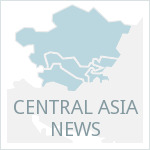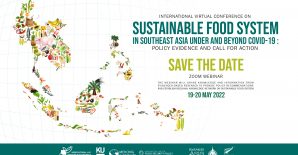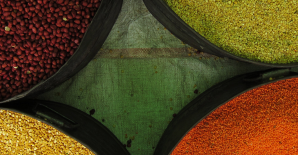News
Kyrgyz Republic to Enhance Quality of Education with World Bank Financing
The World Bank will be providing The Kyrgyz Republic with a $50 million concessional grant for the Learning for the Future Project, which seeks to bolster education. Specifically, the funds will be used to establish 500 kindergartens for 20,000 children in poor communities, build teacher competencies, especially with digital teaching methods, and improve IT systems. Half of the grant requires no repayment, while the other requires repayment over 38 years with a 0.75% interest rate. The Kyrgyz Republic will also receive $55 million with the same repayment terms to improve school infrastructure. - World Bank
Turkmenistan Further Tightens Food Rationing Amid Price Hikes, Shortages
Turkmenistan has already faced food price increases and shortages in recent years, but the situation has been worsened due to anti-COVID-19 measures such as border closures and food import restrictions. Turkmenistan's government has therefore solidified the rationing of food products at subsidized prices. Households are required to keep documentation listing their addresses and number of family members, so that rationing can be completed in accordance with regulation. - RFE/RL
Uzbekistan: Agriculture Ministry provides information on the damage to arable land caused by the flood in Syrdarya
The May 2020 failure of the Sardoba Resevoir Dam caused thousands of evacuations and destroyed homes and lands in the Syrdarya region of Uzbekistan, including a large swath of agricultural land. This week, the Ministry of Agriculture detailed the precise magnitude of damage to arable land, as well as information on efforts to rebuild. In total, 2,054 hectares of cotton fields and 2,026 hectares of cereals were damaged. The region is continuing with cultivation, and recently received a large shipment of fertilizer. - kun.uz
Uzbekistan: Central Bank reports a considerable increase in economic activity and remittances
Like most countries during the COVID-19 pandemic, Uzbekistan has seen a significant decrease in bank transactions over the past months, resulting from production shutdowns and income declines. It now seems that there has been at least a partial recovery beginning in May. In particular, cross-border fund transfers doubled in May, from $234 million to $484 million. Construction is expected to grow by over 4% in the first half of the year and agriculture by less than 3% in comparison to the same period last year. - kun.uz
Analysis & Related Information
COVID-19 Analyses: IFPRI Blogs
IFPRI is facilitating an ongoing blog series to discuss COVID-19 as it relates to food security and development at the global, regional, and country levels. Though some concern specific countries, the insights are applicable to others as the world collectively experiences the impacts of the pandemic. This week's blog discusses how populations' trust in science and government are crucial to effectively addressing COVID-19.
IFPRI Virtual Events
IFPRI has been hosting virtual events to discuss various issues related to food and agriculture policy. Videos like this will periodically be posted publicly after being streamed live, and will include presentations from researchers, discussion between researchers, and Q&A. While there will not be a new seminar this week, please visit the link to view past seminars.
Publications & Reports
Civil Society Brief: Georgia
ADB Publication. 2020. Manila, Philippines: Asian Development Bank.
Estimates of the Global Mortality and Poverty Effects
of the Covid-19 Pandemic
Decerf, B. et al. 2020. Policy Research Working Paper No. 9277, Washington D.C.: World Bank Group.
Female Business Leaders, Business and Cultural Environment, and Productivity around the World
Fang, S. et al. 2020. Policy Research Working Paper No. 9275, Washington D.C.: World Bank Group.
Systemic and non-systemic pesticides in apples from Kazakhstan and their impact on human health
Łozowicka, B. et al. 2020. Journal of Food Composition and Analysis, Vol. 90. Early Online Version
Using Difference-in-Differences to Identify Causal Effects of COVID-19 Policies
Goodman-Bacon, A., Marcus, J. 2020. Vanderbilt University. Discussion Paper.
Who will Bear the Brunt of Lockdown Policies? Evidence from Tele-workability Measures Across Countries
Brussevich, M. et al. 2020. IMF Working Paper No. 20/88, Washington D.C.: International Monetary Fund.
Useful Links & Commentaries on Research Methods, Data & Publications
Fiscal Resilience Building: Insights from a New Tax Revenue Diversification Index
Ouedraogo, R. et al. 2020. IMF Working Paper No. 20/87, Washington D.C.: International Monetary Fund
Estimating the Neutral Interest Rate in the Kyrgyz Republic
Teodoru, I.R., Toktonalieva, A. et al. 2020. IMF Working Paper No. 20/87, Washington D.C.: International Monetary Fund.
The redistributive impact of fiscal policy indicator: A new global standard for assessing government effectiveness in tackling inequality within the SDG framework
Nora Lustig et al. 2020. Data Blog, World Bank Blogs.
Events & Announcements
Virtual Seminars on Applied Economics and Policy Analysis in Central Asia
IFPRI, Westminster International University in Tashkent, and the Lebniz Institute of Agricultural Development in Transition Economies (IAMO) will continue to host weekly seminars on topics related to applied economics and policy analysis in Central Asia. They will take place on Wednesdays, at 7:30am EST, 2:30pm Moscow, 4:30pm Dushanbe & Tashkent, 5:30pm Bishkek & Almaty. For subscribers, registration information will be sent on the Monday before each webinar. For more information and to subscribe, visit the link. This week's webinar will be hosted by IAMO Director Dr. Thomas Herzfeld, who will present Measurement of Agricultural Policies.
Webinars on Bridging Research and Policy Responses to COVID-19: IFAD, FAO, WFP, ICABR, World Bank, IFPRI, IAAE-ICWAE
On June 19, at 5pm CSET, researchers and practitioners from various institutions, including the organizations mentioned in the title, will be hosting webinars to discuss research and policy responses for challenges resulting from COVID-19. Specifically, the presenters will discuss food security in the wake of COVID-19 within a variety of contexts, including rural development, natural disasters, food systems, and more. Please visit the link to register.
Virtual AFE Seminar Series
A virtual seminar series organized by John List of the University of Chicago Department of Economics and Robert Metcalfe of Boston University's School of Business is being hosted weekly on Zoom. Each seminar will include a research paper presentation and Q&A, starting at 12pm EST on Wednesdays. Follow the link to view the full schedule of presenters and to sign up for invitations to the live seminar. Presentations will also by uploaded to a YouTube playlist.
Online Agriculture and Resource Economics Seminar
Dr. Marc F. Bellemare and PhD candidate Jeff Bloem will be hosting a weekly (Wednesdays, 11am CST) online seminar to discuss various research topics related to agricultural economics, nutrition, and food security. For example, the next seminar on June 17 includes a presentation of the paper, "Two-sided online review manipulation" by the University of Idaho's Dr. Liang Lu. Follow the link for registration information and a schedule of upcoming seminars.
Development Policy and COVID-19: eSeminar Series
The World Bank's Development Research Group is hosting an online seminar series for discussions on development policy as it relates to COVID-19. The seminars are completely public, do not require an application or sign-up, and will continue for the foreseeable future.
If you would like us to add your colleagues to our mailing list, please direct them to the following link.
The articles included in this news digest have been generated from online sources. Any opinions stated herein are not representative of, or endorsed by, the International Food Policy Research Institute or its partners.



